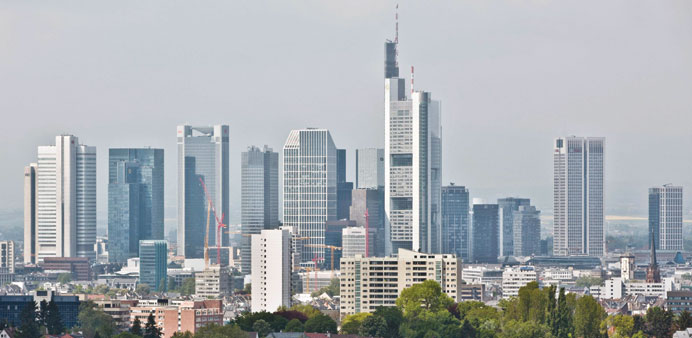Reuters
Annual inflation in Germany slowed to 0.8% in July, probably pushing the eurozone rate lower, although economists said the European Central Bank was unlikely to take action when it meets next week.
Consumer prices harmonised to compare with other European Union countries — the measure favoured by the ECB — eased to 0.8% from 1.0% in June, preliminary data from the Federal Statistics Office showed on Wednesday. That was in line with the consensus forecast in a Reuters poll.
The reading from Europe’s largest economy is a signal inflation in the broader eurozone will ease in July, especially as Spanish consumer prices fell by a bigger than expected 0.3%, and keeps the spectre of deflation alive.
Eurozone inflation currently stands at just 0.5%, in what the ECB calls the “danger zone” below 1%. Economists polled by Reuters before the German data release expected the eurozone figure, due out on Thursday, to hold steady.
“This may have opened up the possibility of it slipping to 0.4% but if nothing else it suggests for now at least inflation is still very, very low,” Jonathan Loynes, Chief European Economist at Capital Economics, said of the data.
On the month, EU-harmonised consumer prices climbed by 0.3% — less than the 0.4% gain seen in June but in line with the Reuters consensus forecast.
The ECB kept interest rates on hold this month after cutting them to record lows in June but made clear it was prepared to print money in future if needed to avoid deflation. Economists said they did not expect it to announce further measures yet.
“The ECB is unlikely to react to the weak inflation data other than again signalling its readiness to go beyond the measures agreed in June,” said Christian Schulz, senior economist at Berenberg Bank.
“They will probably wait for the effect of the TLTROs later this year before potentially stepping up the response,” he added, referring to the ECB’s new round of cheap loans to banks, also announced in June and tied to lending to businesses.
Low inflation has helped boost consumer morale to its highest level in more than 7-1/2 years as low interest rates provide little incentive to save while wage rises and a stable labour market also encourage spending. That should help private consumption, which is expected to drive growth this year.
Jens Weidmann, head of the Bundesbank, which traditionally advocated wage restraint, on Wednesday welcomed inflation-busting wage rises in some sectors in Germany. The bank’s chief economist has also reportedly encouraged unions to be more aggressive in wage negotiations given low levels of inflation.
Based on the national statistical measure, German consumer prices rose by 0.8% on the year — their smallest increase since February 2010 — and by 0.3% on the month.

